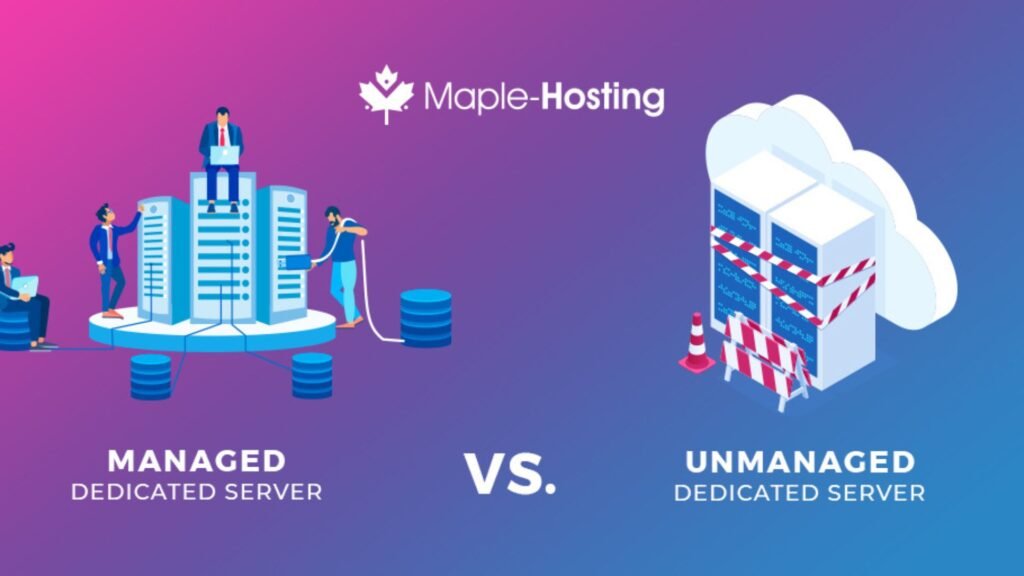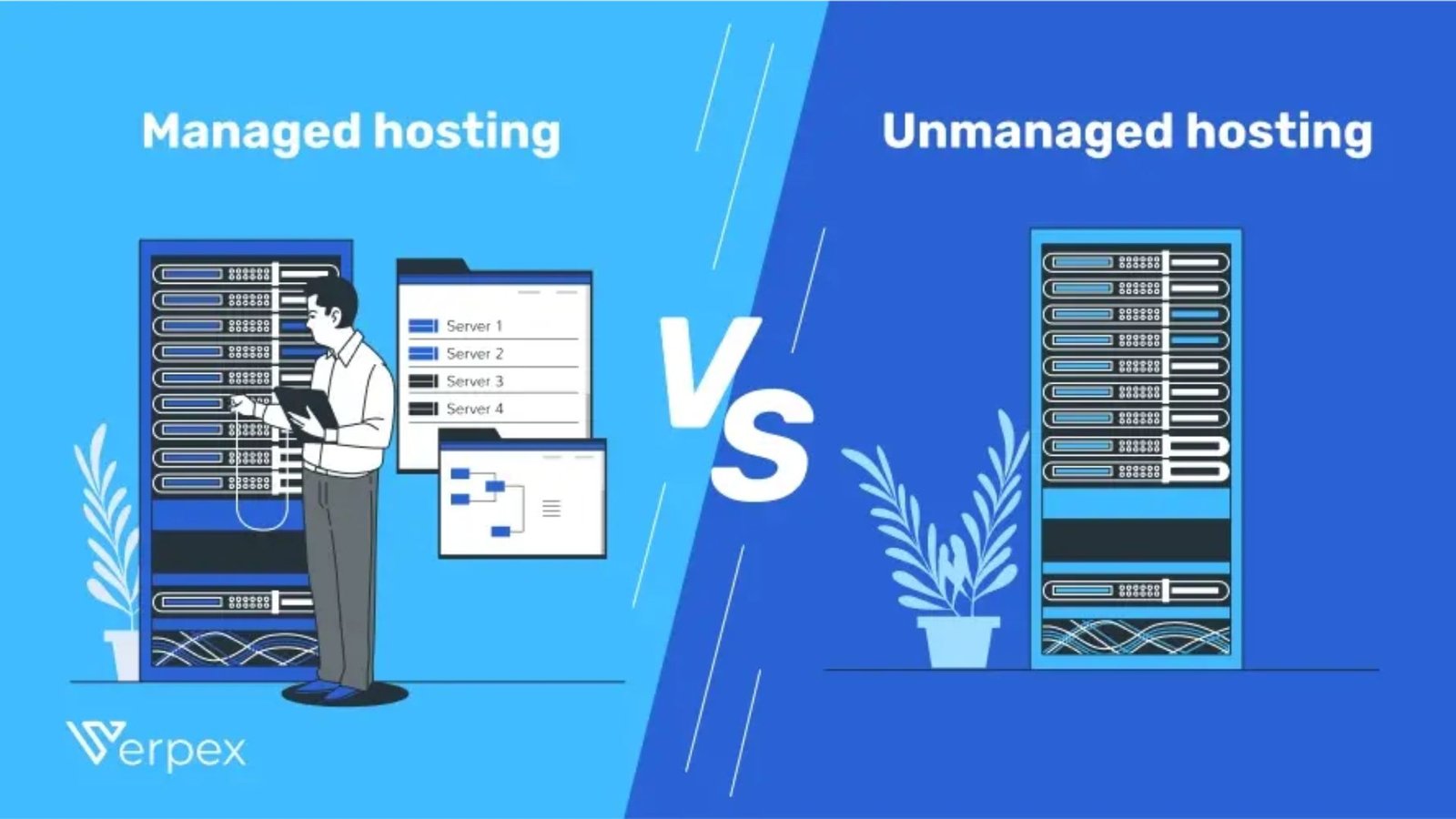Managed Hosting vs. Unmanaged Hosting
- By -Daisy
- Posted on
- Posted in Web Hosting
When choosing a hosting plan for your website, one of the critical decisions is whether to go for managed or unmanaged hosting. Both options have their distinct advantages and are suited to different types of users, whether you are running a personal blog, an e-commerce site, or a large corporate platform. In this article, we will compare managed hosting and unmanaged hosting, examining their key differences, pros, cons, and which is best suited for your needs.

What Is Managed Hosting?
Managed hosting is a type of web hosting where the hosting provider takes responsibility for the management of your server and the overall hosting environment. This typically includes server setup, maintenance, updates, security, backups, and troubleshooting. Managed hosting services often come with round-the-clock customer support and expert assistance with any technical issues related to the server.
Key Features of Managed Hosting:
- Server Maintenance and Updates: The hosting provider handles updates, patches, and general server maintenance.
- Security: Managed hosting includes strong security measures, such as firewalls, malware scanning, and SSL certificates.
- Backups: Regular backups are often included, ensuring your data is safe and recoverable.
- 24/7 Support: Customer support teams are available around the clock to assist with any issues that arise.
- Performance Optimization: The host may optimize the server for speed and efficiency, ensuring maximum uptime.
Advantages of Managed Hosting:
- Ease of Use: Ideal for users who do not have technical expertise, as the provider manages the entire hosting environment.
- Reliability: Hosting companies ensure your server is always up to date, secure, and running optimally.
- Time-Saving: You do not need to worry about managing the server, leaving you more time to focus on your website or business.
- Expert Support: Access to professionals who are experts in server management and troubleshooting.
Disadvantages of Managed Hosting:
- Higher Cost: Managed hosting is more expensive than unmanaged hosting because of the additional services provided.
- Less Control: Since the host manages the server, you have less control over certain aspects of the server and its configuration.
What Is Unmanaged Hosting?
Unmanaged hosting, on the other hand, provides you with more control over the server, but also leaves you with the responsibility of managing, configuring, and maintaining it. This includes tasks like installing software, applying security patches, performing regular updates, managing server backups, and dealing with any technical issues that arise. Typically, unmanaged hosting provides you with a server and the resources, but it’s up to you to make sure everything is running smoothly.
Key Features of Unmanaged Hosting:
- Full Control: You are in charge of all server management tasks, including configuration and updates.
- Customizability: You can configure the server to suit your exact needs, from software installations to security protocols.
- Root Access: You have complete access to your server, allowing you to install any software or make any changes you want.
Advantages of Unmanaged Hosting:
- Lower Cost: Unmanaged hosting is more affordable because you are responsible for server management, and there is less overhead for the hosting provider.
- Complete Control: You have the freedom to customize the server as per your needs and requirements, giving you full flexibility.
- Ideal for Developers: If you have technical skills or are running a website with very specific needs, unmanaged hosting allows you to make complex adjustments to your server.
Disadvantages of Unmanaged Hosting:
- Requires Technical Knowledge: Managing a server requires a certain level of technical expertise, including knowledge of server configurations, security, and maintenance.
- Time-Consuming: You must manage all aspects of the server, including backups, updates, and security, which can be time-intensive.
Key Differences Between Managed and Unmanaged Hosting
To better understand which option is right for your website, let’s look at the key differences between managed and unmanaged hosting.
| Feature | Managed Hosting | Unmanaged Hosting |
|---|---|---|
| Server Management | Provider handles all management tasks. | You manage all server configurations and updates. |
| Technical Support | 24/7 support for server issues and troubleshooting. | Limited or no support for server management. |
| Cost | More expensive due to extra services. | More affordable, as you manage the server. |
| Control | Less control over server configuration. | Full control over server configuration and software. |
| Security | Managed security with regular updates and patches. | You are responsible for securing the server. |
| Backups | Automated backups included. | You are responsible for creating and managing backups. |
| Customization | Limited customization options. | Full customization based on your needs. |
Conclusion
The choice between managed and unmanaged hosting ultimately depends on your needs, technical skills, and budget. Managed hosting is perfect for users who want ease of use, reliable support, and fewer maintenance tasks, while unmanaged hosting is ideal for those with the technical ability and desire for more control over their server. Carefully evaluate your website’s requirements, and choose the hosting type that will best support your goals and resources.



